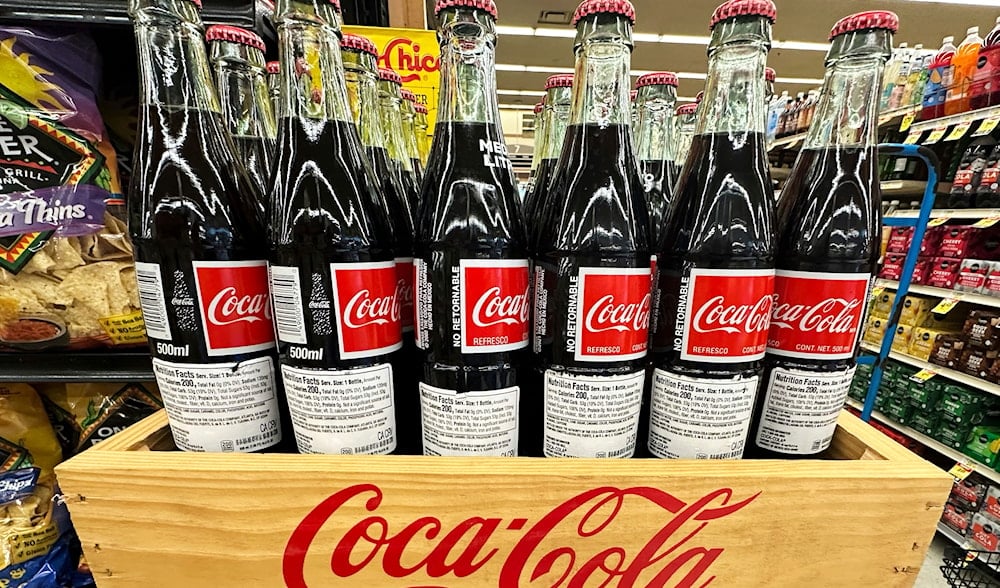Coca-Cola's market share declines in Asian countries due to boycotts
As boycott movements intensify over the Gaza war, Coca-Cola Icecek faces shifting consumer loyalty and rising competition from local brands across key Muslim-majority markets.
-

Bottles of Mexican Coca-Cola are displayed at a grocery store in Mount Prospect, Illinois, Thursday, July 17, 2025. (AP Photo/Nam Y Huh)
Coca-Cola Icecek AS, the Istanbul-based bottling and distribution partner for Coca-Cola in several countries, has experienced a notable decline in its market share across key regions as a result of ongoing consumer boycotts targeting Western brands linked to "Israel". The backlash comes in response to the war on Gaza, fueling one of the most widespread boycott movements in recent history.
According to data released by the company, Coca-Cola Icecek's share in the Turkish market dropped by five percentage points to 54%, while its presence in Pakistan's sparkling beverage segment fell by four points. Additional declines were observed in markets such as Kyrgyzstan, Jordan, and Uzbekistan.
These shifts reflect broader changes in consumer behavior amid geopolitical tensions. As the war in Gaza intensifies, brands perceived to be aligned with "Israel" are being shunned by consumers, especially in Muslim-majority nations.
-

Coca-Cola market share drops in select Asian countries following boycott calls (source: Coca-Cola Icecek, AG Anadolu Grubu Holding AS; produced by Al Mayadeen English)
Local alternatives, including Cola Next in Pakistan and Mojo by Akij Food & Beverage in Bangladesh, have gained traction, capitalizing on this growing consumer sentiment.
Hasnain Malik, head of equity strategy at Tellimer Technologies, noted to Bloomberg that such boycotts provide "lasting opportunities for smaller, locally-branded competitors," unless public perceptions toward the incumbents shift significantly.
Broader impact on western brands
Global consumer backlash has affected several Western companies. McDonald’s, for example, faced sharp criticism after its Israeli franchise publicly supported occupation forces by donating meals. This led to global sales drops and the acquisition of its Israeli branches in an attempt to mitigate damage. Starbucks similarly saw regional sales plummet and job cuts in the Middle East.
The boycotts have resonated deeply in Muslim-majority countries such as Turkey, Malaysia, and Indonesia. These movements have reshaped the market landscape, offering an opening for local and regional brands.
Strategic outlook
Despite the setbacks, Coca-Cola Icecek remains a dominant player in Central Asia and neighboring regions. While the company reported a 31% decline in net income, down to approximately 5.1 billion Turkish liras ($124 million) in Q2 2024, overall sales volumes continue to grow.
CEO Karim Yahi acknowledged both macroeconomic pressures and the fallout from the war on Gaza as contributing factors in a recent analyst briefing.
While industry analysts cited by Bloomberg, like Alex Dray of Gimme Credit, believe that many consumers may return to global brands once the conflict subsides, the immediate financial and reputational impact on companies like Coca-Cola Icecek is undeniable. The use of the term "boycott" in corporate earnings reports signals how seriously multinationals are now taking these grassroots movements.

 3 Min Read
3 Min Read








